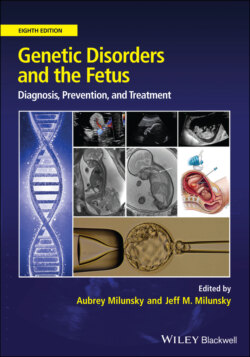Читать книгу Genetic Disorders and the Fetus - Группа авторов - Страница 111
Bacteriostatic effect
ОглавлениеA number of studies have supported the original contention of antibacterial activity by demonstrating that AF contains a substance that suppresses or inhibits bacterial growth.391, 392 The first suggestion was lysozyme, an ubiquitous enzyme with lytic properties found in many tissues and secretions.393 Subsequent studies have suggested that zinc is an important component.312, 394 The antibacterial activity of zinc in AF seems to depend on a second, organic, component, which is heat stable and resists proteolytic digestion.261 AF contains a potent antimicrobial peptide (β‐defensin‐2), the concentration of which is increased in patients with microbial infection in the amniotic cavity.395 Phosphate seems to reverse the AF inhibitory activity, possibly by interfering with the organic component rather than with the inorganic zinc.261, 354 The antimicrobial effect and bacteriolytic activity of AF have been studied on several strains.223, 396 Both lysozyme and β‐lysin (a bactericidal substance) have been identified as early as the second trimester. Normal bacteriolytic activities have been found in pregnancies in which respiratory distress syndrome developed in the infants. On the other hand, lack of an antimicrobial effect of AF on anaerobic bacteria may be one reason for the high incidence of spontaneous abortions in those conditions. Several findings suggest that β2‐ microglobulin exhibits strong antibacterial activity and is upregulated in amniotic cells during bacterial infection.397
Other workershave concluded that AF inhibits Staphylococcus aureus throughout pregnancy, whereas clear inhibition of Escherichia coli and Streptococcus agalactiae appears during the third trimester.263 It is important to note the ineffectiveness of AF against group B streptococci, the frequently documented cases of congenital infections, and the early deleterious effects of Bacteroides fragilis, especially in the first trimester.398
The effect of AF on bacterial growth also has been stressed by Ismail et al.399 while Martius and Eschenbach400 reviewed the literature on bacteria as a cause of amnionitis associated with premature labor. Bacterial proteases and lipases could play a role in weakening fetal membranes and a genetic predisposition may have a role.
An inhibitory effect on HIV replication has been observed, and attributed at least in part to the cell‐free protein fraction of AF.401
